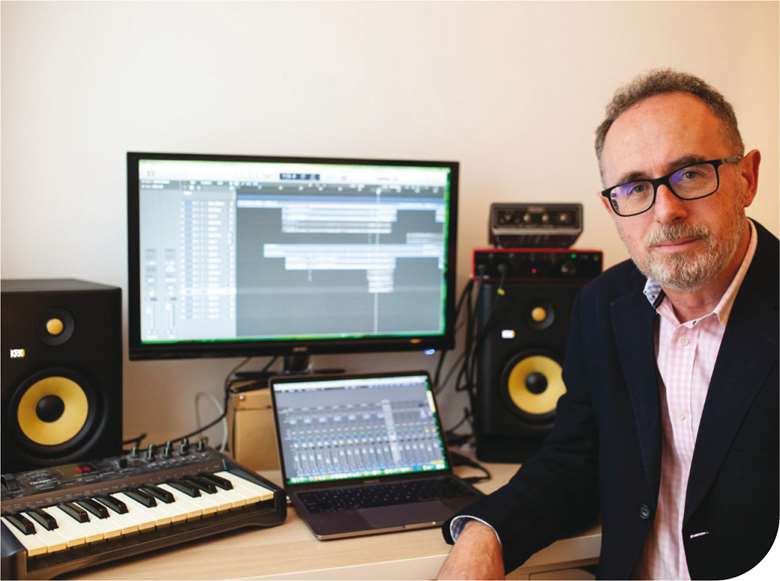Q&A: William Thompson
Derren Hayes
Tuesday, September 1, 2020
Independent music retailer Chamberlain Music's new director of education tells Derren Hayes why he's passionate about technology and teaching.

DH: Hello William, congratulations on your new role! How is it working out so far?
WT: Although I am based in Bangor, Northern Ireland, it is still relatively easy to work effectively within the Chamberlain Music education team, which is based in Haslemere, Surrey. I plan to visit Haslemere on a regular basis, but due to the coronavirus pandemic it has only been possible to travel over once so far! This role also requires me to visit schools across the UK, as well as around the world, including the Middle East, Asia and Africa.
DH: What were you doing before you joined Chamberlain Music?
WT: I come from a music education sales background, most recently with Dawsons Music. However, I started my career as a teacher. I read Music at King's College, Cambridge, where I also sang in the world-famous King's College Choir. I gained my teaching qualification at Queens University, Belfast. After teaching in Dublin and then Belfast, I became music advisor for schools in Northern Ireland, with a particular emphasis on the relevant use of technology in the classroom. I was part of the team that helped design the new music curriculum, and was also an examiner for both GCSE and A-level Music.
DH: What attracted you to the role?
WT: When I was at Dawsons I considered Chamberlain Music a competitor – they were seen as a company whose markets were mainly in sheet music, pianos and more traditional classroom instruments, primarily supplying schools in England and Wales. However we have been developing our international business and part of my role is to grow those sales. In order to develop our music technology offering, we have recently added 30 pages to our education catalogue. Chamberlain Music is owned by Frederick Hyde group, which owns a number of key education brands including Musisca, Octopus Ukuleles, Percussion Plus and Wak-a-tubes. We also distribute brands including Izzo Samba percussion, Jumbie Jam steel pans, Manhasset and RAT music stands.
DH: What does an average day look like?
WT: My day currently consists of responding to technical queries and quote requests from schools in the UK and overseas. Once travel is a little easier, I'm looking forward to getting out of the office more. One of the things I bring to Chamberlain Music is my experience in developing the use of music technology in the classroom. This has led to me advising schools and colleges around the world on the design and construction of performing arts departments, so some of my time is spent consulting on areas such as recording studios, acoustics, dance and drama spaces, and theatres. Currently, I am working on a project for a new school outside Abu Dhabi in the United Arab Emirates.
DH: Where did your interest in music technology come from?
WT: At school my intention was to be an engineer; music was an afterthought. Music technology is something I continued to be interested in when I started teaching, and I was able to help other teachers, as few of them had come through that route. These skills are useful when supporting schools that are building new music facilities. We offer a free consultation service where I can explain to the architects and design engineers the teachers’ technical requirements. Building this relationship can then hopefully lead to orders for further resources. I'm keen to develop these kinds of relationships with any UK or international schools that are building new facilities or refurbishing existing ones.
DH: If you could only listen to one piece of music, what would it be?
WT: Probably the Duruflé Requiem, which has a special place in my heart as it was the first recording I did at King's College when I arrived in 1980, under the direction of Philip Ledger. I still remember walking to King's chapel through the snow.

